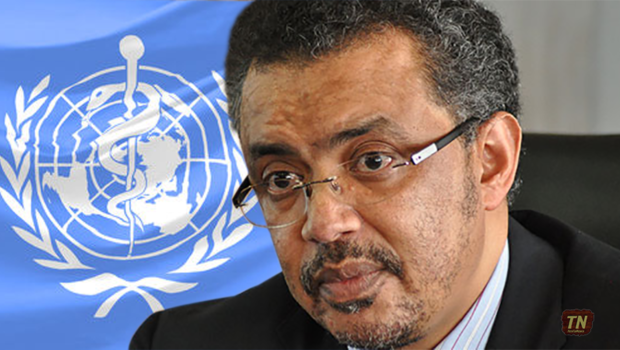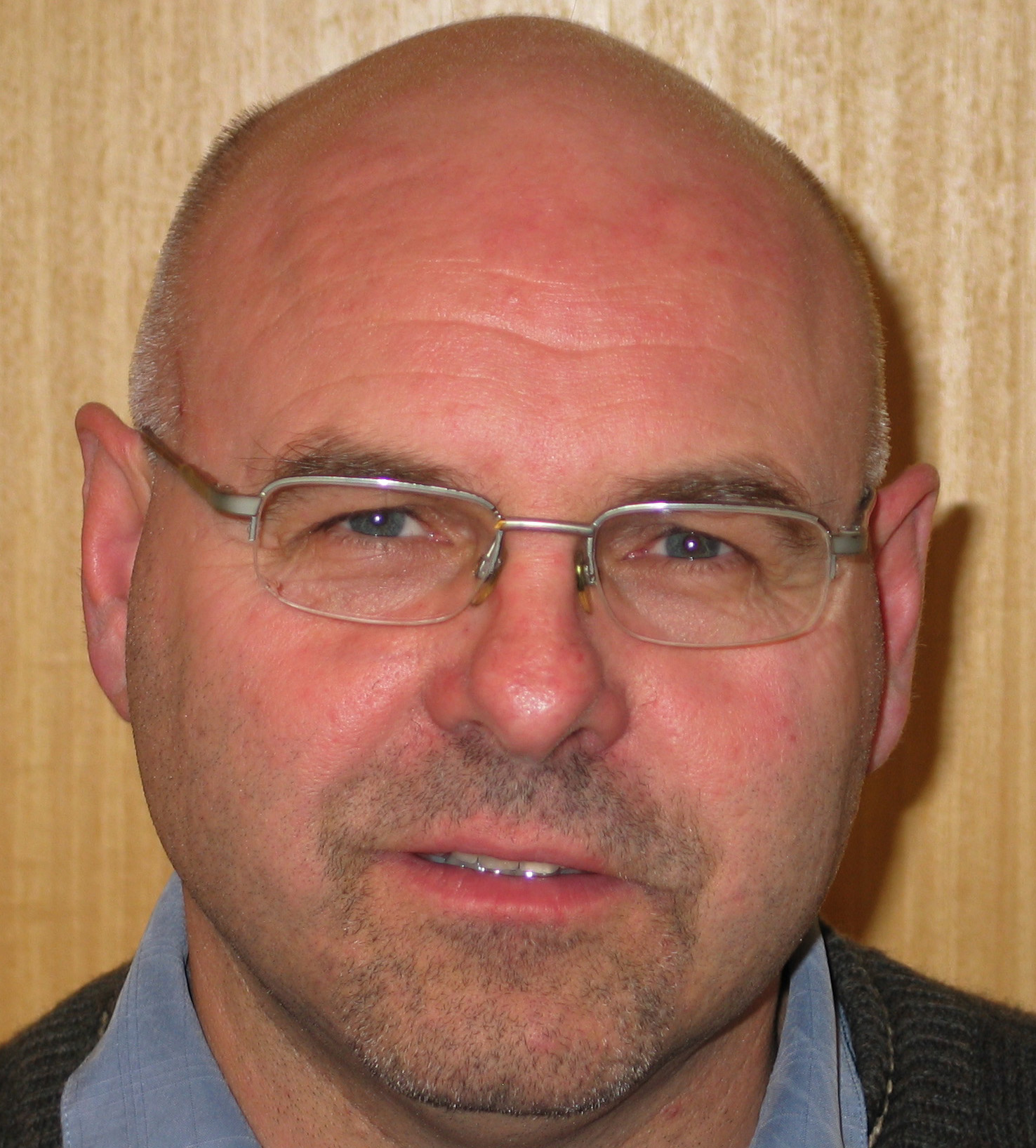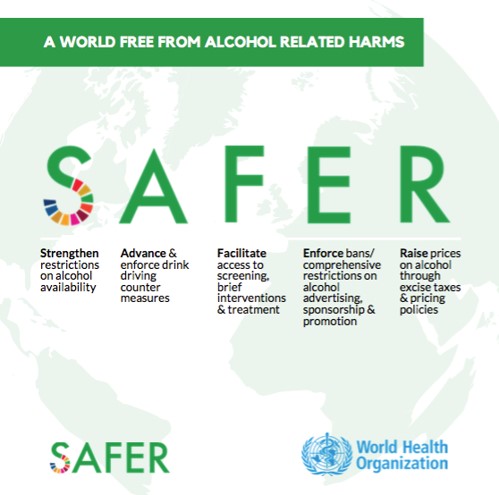SAFER – a new WHO initiative to boost national alcohol policy processes
WHO recently launched a new action package – SAFER. It aims at supporting the global target of reducing harmful use of alcohol by 10% by 2025. The initiative has been strongly supported by several global civil society networks.
SAFER is a WHO-led roadmap to support governments in taking practical steps to accelerate progress on health, beat non-communicable diseases (NCDs) through addressing the harmful use of alcohol, and to achieve sustainable development targets.
The SAFER package provides technical guidance on five high-impact strategic actions that are prioritized for implementation to promote health and development:
 Strengthen restrictions on alcohol availability.
Strengthen restrictions on alcohol availability.- Advance and enforce drink driving countermeasures.
- Facilitate access to screening, brief interventions, and treatment.
- Enforce bans or comprehensive restrictions on alcohol advertising, sponsorship, and promotion.
- Raise prices on alcohol through excise taxes and pricing policies.
“We are proud to introduce SAFER – a package of proven interventions to reduce the harms caused by alcohol, and a new partnership to catalyze global action,” said Dr Tedros Adhanom Ghebreyesus, Director-General of the World Health Organization. “We need governments to put in place effective alcohol control policy options and public policies to reduce the harmful use of alcohol.”
 Kristina Sperkova, International President of IOGT International commented: “In communities and societies around the world, we see an urgent need for action to prevent and reduce alcohol harm. Investing in the alcohol policy best buys as packaged in SAFER is scientifically sound and economically smart, generating considerable returns on investment.”
Kristina Sperkova, International President of IOGT International commented: “In communities and societies around the world, we see an urgent need for action to prevent and reduce alcohol harm. Investing in the alcohol policy best buys as packaged in SAFER is scientifically sound and economically smart, generating considerable returns on investment.”
IOGT International is one of the global civil society networks that have been part of the preparation process and that strongly welcome the new WHO initiative, together with Vital Strategies, the NCD Alliance and the Global Alcohol Policy Alliance.
WHO admits that there has been too little progress since the endorsement of the ‘Global strategy to reduce the harmful use of alcohol’ by the World Health Assembly eight years ago. “But SAFER brings new impetus for action,” said WHO Assistant Director-General Dr Svetlana Axelrod. “We encourage countries to take action, monitor their progress, and protect alcohol policy development from interference by commercial interests. Support from civil society and donors is critical for success on alcohol control that contributes to reducing poverty, improving gender equality and improving public safety.”
 FORUT also warmly welcomes the new action package from WHO. Says Secretary General Morten Lønstad: “After having been involved in national alcohol policy processes in a number of Southern African countries for more than ten years, we clearly see the need for international support to national governments. In developing countries, governments often lack administrative capacity to develop and implement policies, and many of these countries are under heavy pressure from the alcohol industry to refrain from alcohol regulations” National governments often look to WHO for advice and with SAFER there is now a tool in place that can be used.
FORUT also warmly welcomes the new action package from WHO. Says Secretary General Morten Lønstad: “After having been involved in national alcohol policy processes in a number of Southern African countries for more than ten years, we clearly see the need for international support to national governments. In developing countries, governments often lack administrative capacity to develop and implement policies, and many of these countries are under heavy pressure from the alcohol industry to refrain from alcohol regulations” National governments often look to WHO for advice and with SAFER there is now a tool in place that can be used.

RELATED ARTICLES
- New report highlights benefits of policy measures to prevent harmful alcohol consumption
- Alcohol obstacle to development
- WHO consultation on global alcohol strategy and the way forward
- Alcohol use - a barrier to health and to the achievement of the SDGs
- Government investments in alcohol industry up against the wall
- Abstracts for GAPC 2020 – deadline 29 July 2019
- A regional African alcohol coordination mechanism is needed
- New book reveals a series of unethical business practices by Heineken in Africa
- SAAPA applauds WHO position on no industry collaboration
- Next GAPC to be held in Dublin in March 2020

